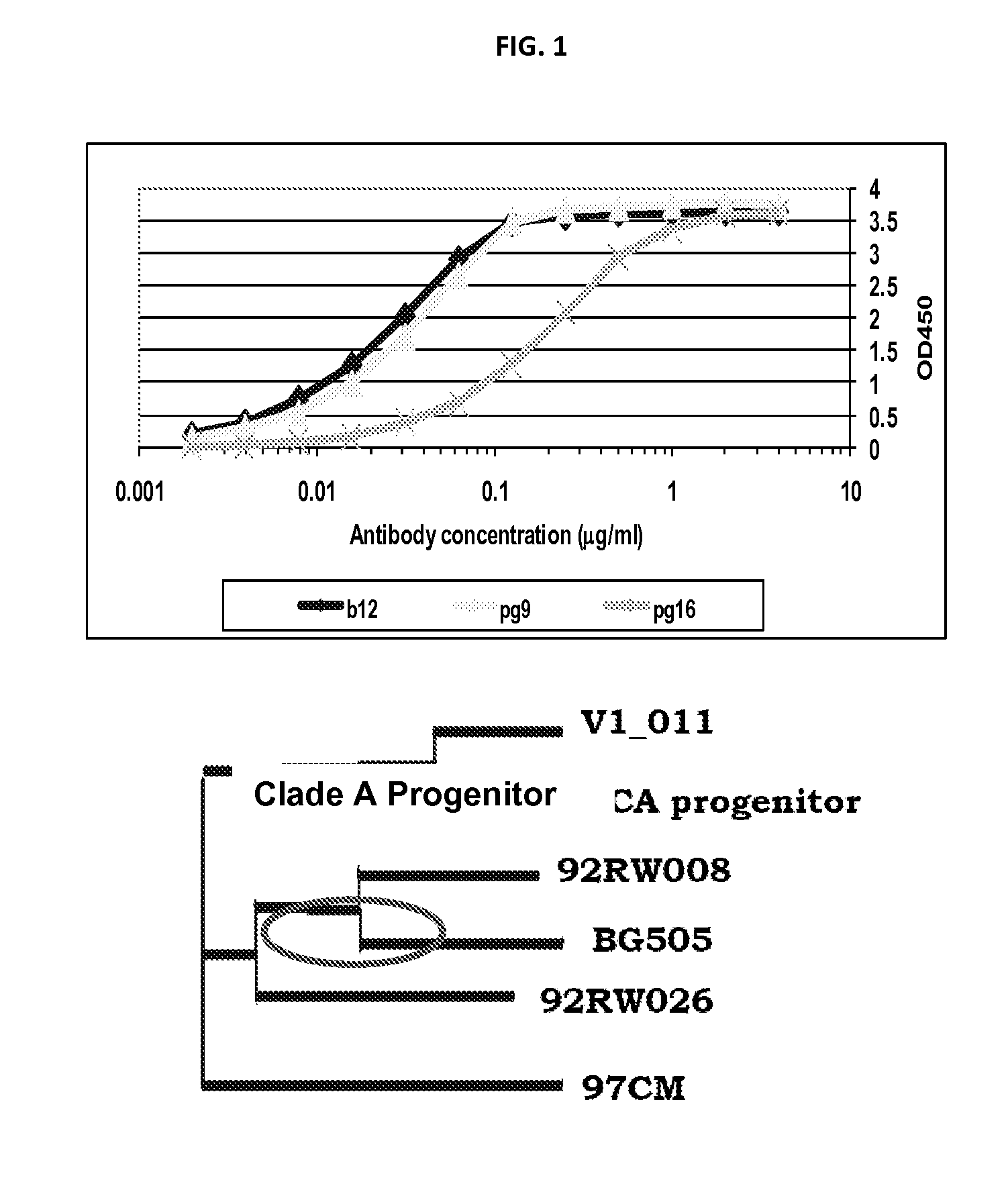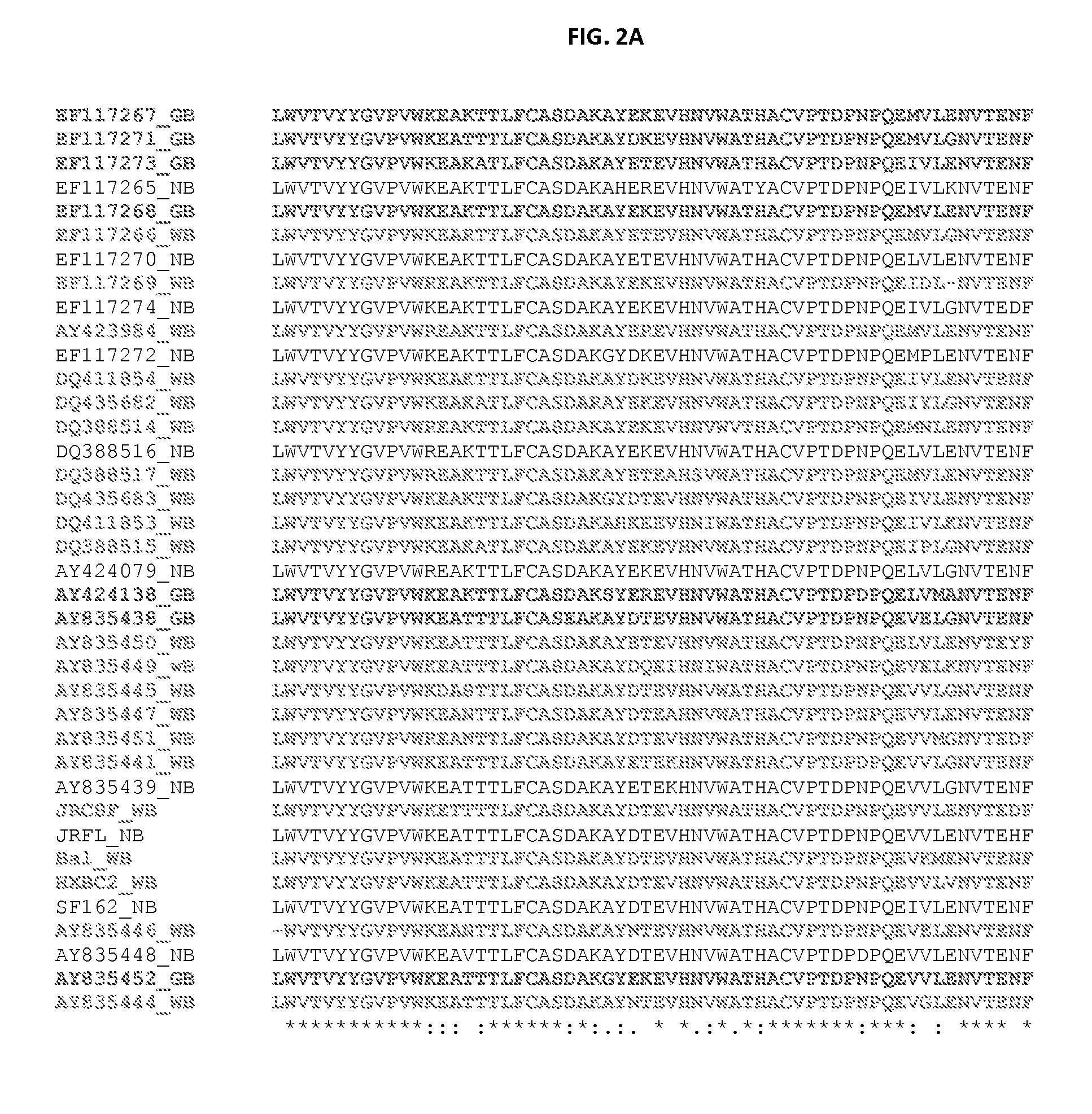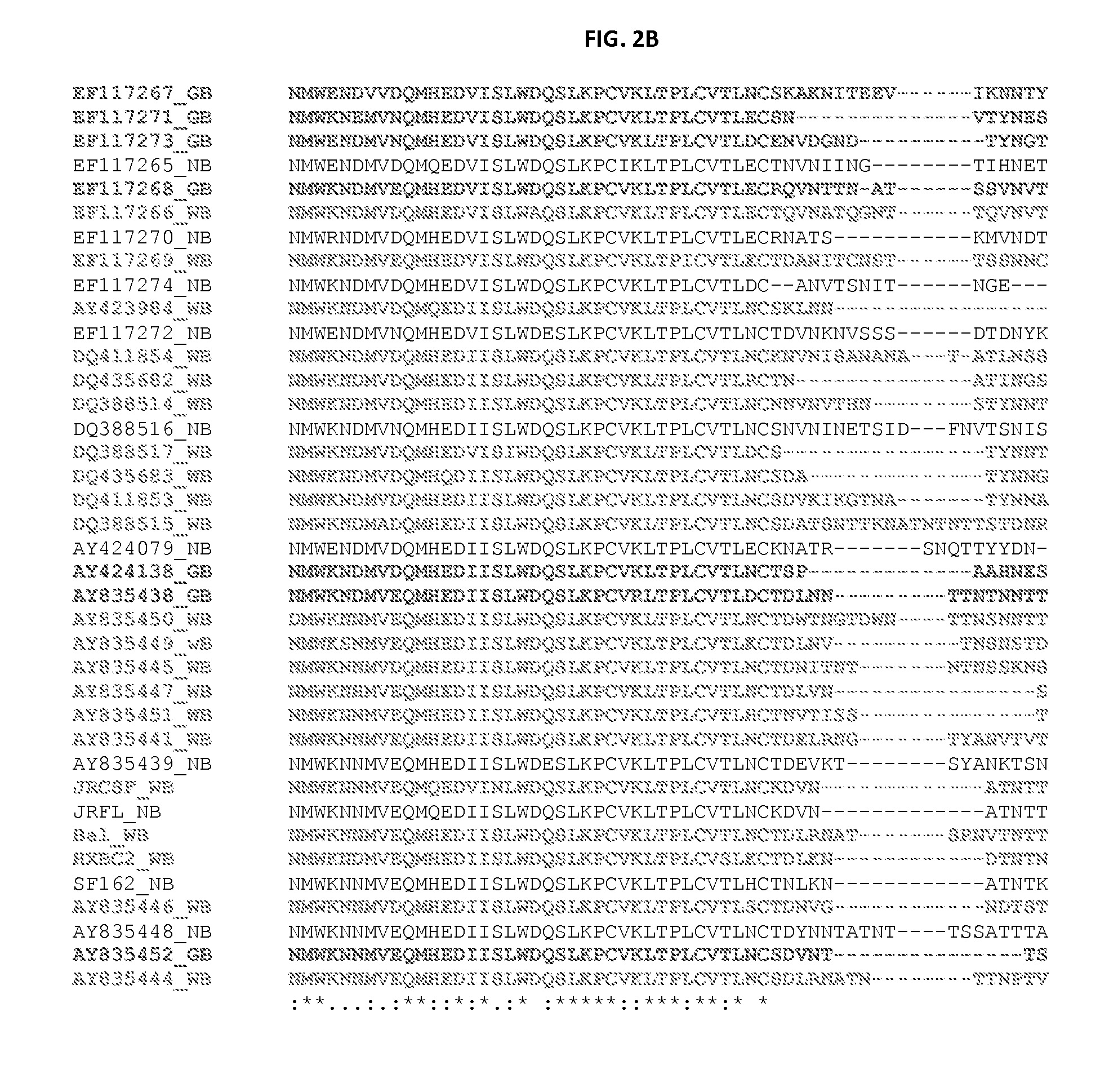HIV-1 envelope glycoprotein
- Summary
- Abstract
- Description
- Claims
- Application Information
AI Technical Summary
Benefits of technology
Problems solved by technology
Method used
Image
Examples
example 1
Identification of Soluble HIV-1 Envs with Better Binding to PG9 / PG16
[0156]Shed gp120 were screened as follows. More than 50 HIV-1 Envs from Tier II Clade B, C, Indian clade C panel, some tier I clade B and few founder virus envelopes were tested.
[0157]The method for screening shed gp120 was as follows:[0158]Transfect 293T cells with NL4-3 back bond and HIV-1 Env plasmids;[0159]Collect supernatant;[0160]Capture shed gp120 on ELISA plate coated with D7324 (anti-C5 polyclonal); and[0161]Probe the captured Env for binding to b12, PG9 and PG16.
[0162]Applicants have codon optimized gp120 and gp140 versions of all the four Indian Clade C strains that show exceptional binding to PG9. Applicants have tested the Envs by transient transfection and they maintain the property of binding as seen on shed gp20. Applicants may use these Envs for immunogenicity studies, to generate tools for mapping of PG9-like antibodies in sera and / or generate resurfaced gp120 for better presentation of a PG9 epito...
example 2
Stabilizing Mutation BG505 L111A for HIV Envelope Proteins
[0163]The Example relates to a way to stabilize a recombinant Clade A HIV Envelope (Env) protein. It is a mutation L111A that eliminates aggregates but also further stabilizes proteins. The mutation was described earlier as reducing the formation of dimers in a Clade B protein (Finzi A et al. J Virol Methods. 2010 September; 168(1-2):155-61). The same mutation introduced into Clade A Env protein not only did that but also allowed purification of HIV gp120 proteins that was not possible before, thus increasing overall stability of the protein. Further analysis of proteins carrying this mutation confirmed that these proteins retain full antigenicity of the wild type protein, i.e. binding of neutralizing antibodies associated with resistance to HIV. Applicants have tested antibody binding for several conformation variants of Envelope protein: gp120 secreted and purified from mammalian cells, gp140 with an artificial trimerizatio...
example 3
Stabilizing Mutation BG505 L111A T7332N for HIV Envelope Proteins
[0182]The Example relates to methods for improving binding of certain PGT antibodies to a recombinant Clade A HIV Envelope (Env) protein. Mutation T332N that introduces a potential glycosylation site important as a part of epitopes for some PGT antibodies (Walker L M et al. Nature. 2011, 477(7365):466-70 and Pejchal R et al. Science. 2011, 334(6059):1097-103). The protein was expressed as BG505 L111A T332N gp120. Further analysis of proteins carrying this mutation confirmed that these proteins retain fill antigenicity of the wild type protein, i.e. binding of neutralizing antibodies associated with resistance to HIV. In addition to those antibodies a family of antibodies PGT135 and PGT136 were binding to the mutant protein. Other antibodies, for example PGT121 family, improved their binding properties. Binding to T332N mutant protein does not depend on the cell line used for expression. We used both HEK 293T cells (pro...
PUM
 Login to View More
Login to View More Abstract
Description
Claims
Application Information
 Login to View More
Login to View More - R&D
- Intellectual Property
- Life Sciences
- Materials
- Tech Scout
- Unparalleled Data Quality
- Higher Quality Content
- 60% Fewer Hallucinations
Browse by: Latest US Patents, China's latest patents, Technical Efficacy Thesaurus, Application Domain, Technology Topic, Popular Technical Reports.
© 2025 PatSnap. All rights reserved.Legal|Privacy policy|Modern Slavery Act Transparency Statement|Sitemap|About US| Contact US: help@patsnap.com



